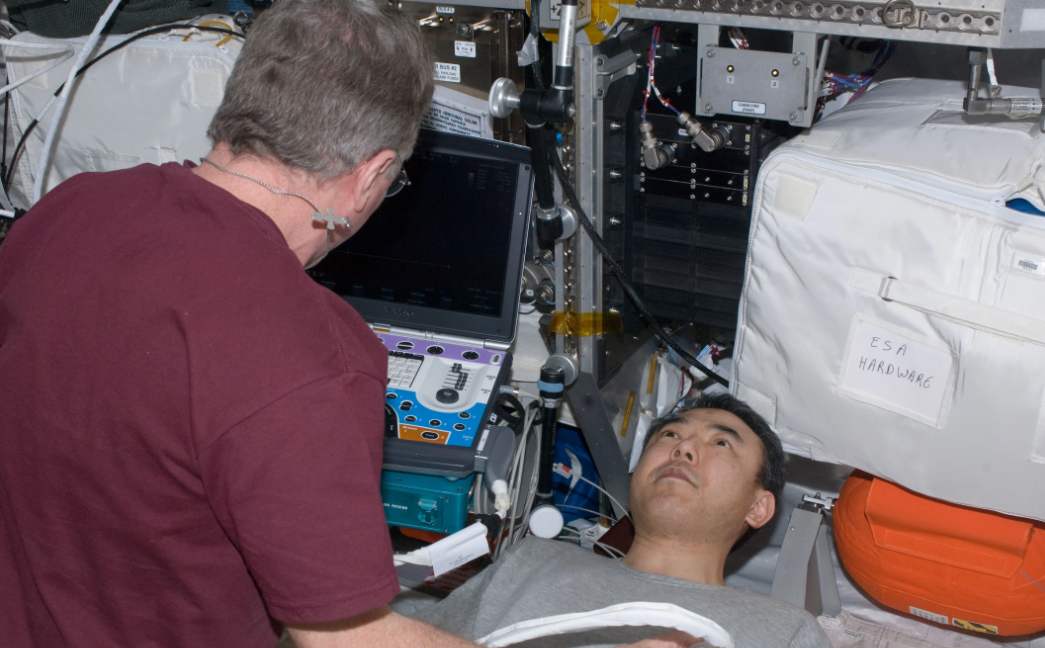Kidney stones, often painful and debilitating, have long been a serious concern for astronauts. Dehydration, stasis, and bone demineralization are strong contributors to kidney stones and commonly occur in microgravity.
Astronauts have reported kidney stones, postflight, more than 30 times. Technology currently under investigation could solve this and other health problems related to spaceflight. The Flexible Ultrasound System demonstrates use of a ground-tested, software-based ultrasound technology in a device for deep-space missions.
FUS aims to provide state-of-the-art clinical internal imaging and additional capabilities, such as using ultrasound for therapy as well as diagnosis, and facilitating development of algorithms for advanced image interpretation. FUS is based on the commercial GE Vivid-E95 clinical ultrasound device. Modifications by ZIN Technologies Inc. advanced capabilities that allow researchers not only to detect and manipulate renal stones, but also assess bone health, enhance healing of musculoskeletal injuries, monitor intracranial pressure via eye scans, and provide training tools so astronauts can produce diagnostic-quality ultrasound scans autonomously.
ZIN would like to acknowledge the following key members of the FUS team; John Eustace for his hard work and technical expertise, Wayne Borrelli for safety, Robert Yarber for contract negotiation, Jim Shaffner for contract management, and Scott Fisher for hardware assembly. ZIN Technologies was acquired by Voyager Space in March 2023.
